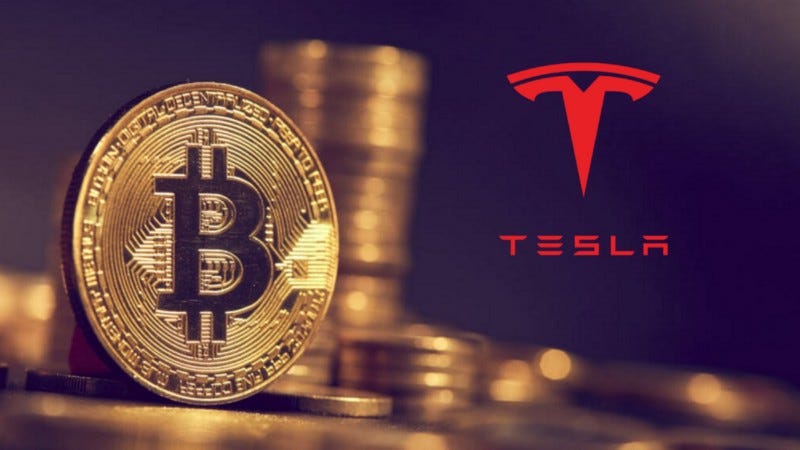Bitcoin Is the Tesla of Money
It's not that groundbreaking - but it woke up the legacy players
Honest people already know the truth…
Yard Couch’s Isaiah McCall, who’s been doing little more than pumping coins for the past two years, is all of a sudden admitting what he’s known all along: That the crypto industry is a fraud.
Even CoinDesk — one of the biggest Bitcoin sites in the world — admits it’s a Ponzi scheme.
Bitcoin took a thirty-year-old technology, gave it a shiny new brand, and won itself a cult following that led to 17,595 imitators and counting, all fighting to be the monopolistic king of the new world of centralized digital cash.
In other words, Bitcoin is the Tesla of money.
Like Bitcoin, Tesla is built on old technology.
We’ve had electric cars since 1828.
Tesla took a 194-year-old technology, gave it a shiny new brand, and won itself a cult following.
Tesla, too, is a giant fraud.
It’s run by a Marie Antoinette-level anti-commons sociopath.
But there’s a major difference between Bitcoin and Tesla.
Tesla employees actually produce something of value:
Electric vehicles.
It doesn’t matter if Tesla closes its door tomorrow; it will go down in history for one reason — it woke up the slumbering monopolies who’d been resting on their laurels for two generations.
Tesla made EVs, and now everyone makes EVs.
Bitcoin is different.
Bitcoin doesn’t make anything.
It’s just a bunch of digital files that have been temporarily assigned outrageous amounts of fiat money.
Why?
Because Bitcoiners are hoping 200+ national governments will relinquish their ability to create and control their national currencies and instead buy into a digital file system where they don’t have a first-mover/early-buyer advantage.
In other words, one Bitcoin is “worth” $40K because current holders think it will be worth $20M when they sell it to someone else in the future.
This isn’t a productive asset.
It’s the definition of a pyramid scheme.
But now, just like Tesla, Bitcoin is waking up the legacy players:
Governments.
Unlike Tesla, which inspired a flurry of investment and innovation in the EV space by traditional automakers, Bitcoin has triggered a whole different sort of investment and innovation by governments.
It’s the kind that will leave you and me and our children in financial chains.
Don’t listen to the delusional cult followers who try to tell you otherwise: If a dude/dudette/robotette code-named Satoshi can re-purpose a digital file system and call it money, a nuclear nation with a million-person military and a multi-trillion-dollar budget can hamstring it.
It is only a matter of time before America and many other nations start playing Toyota to Elon’s Tesla and launch their own cryptocurrencies.
On the surface, this might seem like a good thing. After all, isn’t it great that the disruptor Tesla has essentially forced Ford and Volkswagen to build EVs?
Sure, but Bitcoin isn’t Tesla.
When the legacy nations launch their competing versions of Bitcoin, they will all be surveillance currencies.
These digital coins will still be highly-manipulatable fiat currencies, but they will also be fully traceable, trackable, deletable, and weaponizable. They will be panopticoins that allow nations to economically exclude dissidents at will.
It would be like Tesla launching an EV… and Honda deciding to turn the CR-V into a prison on wheels.
We needed a Tesla to wake up the slumbering monopolies and force them to innovate in the EV space.
We needed a Bitcoin to wake up citizens to the realization they’re being systematically robbed via inflation.
But while the existence of Tesla leads to more EVs for everyone, the existence of Bitcoin just leads to less freedom for everyone.
Our call to action shouldn’t be “buy and HODL Bitcoin.”
It’s “stop voting for Republicans and Democrats and vote in a new party that will deliver democratic digital money that isn’t surveilled.”
But Bitcoiners don’t want democratic money.
They just want to sell you their digital files for everything you’ve got.


